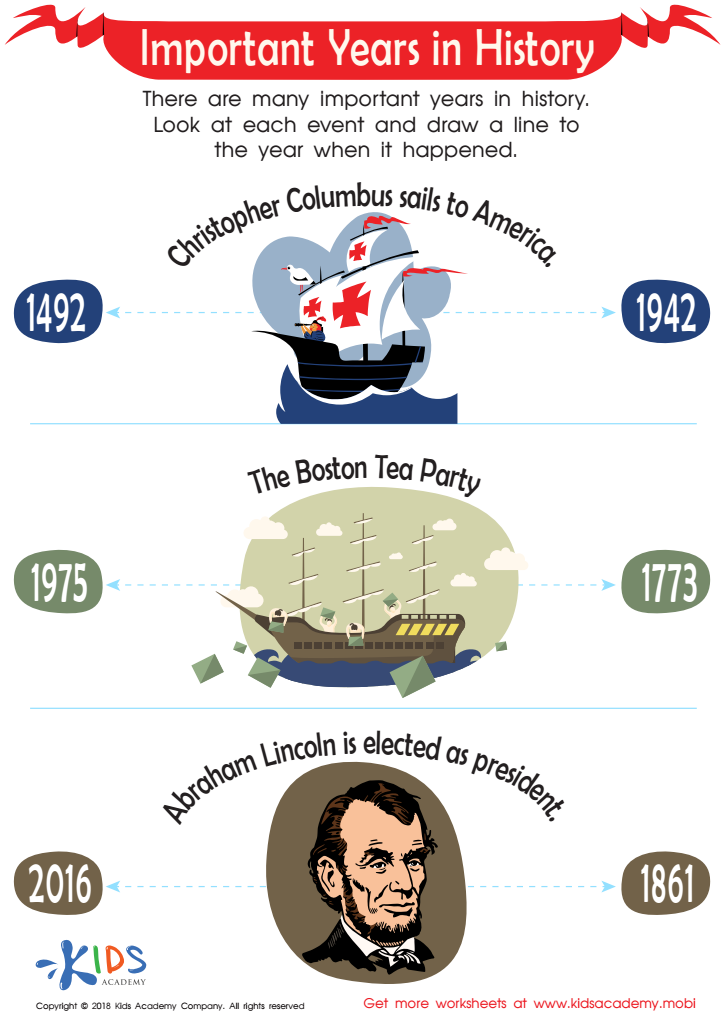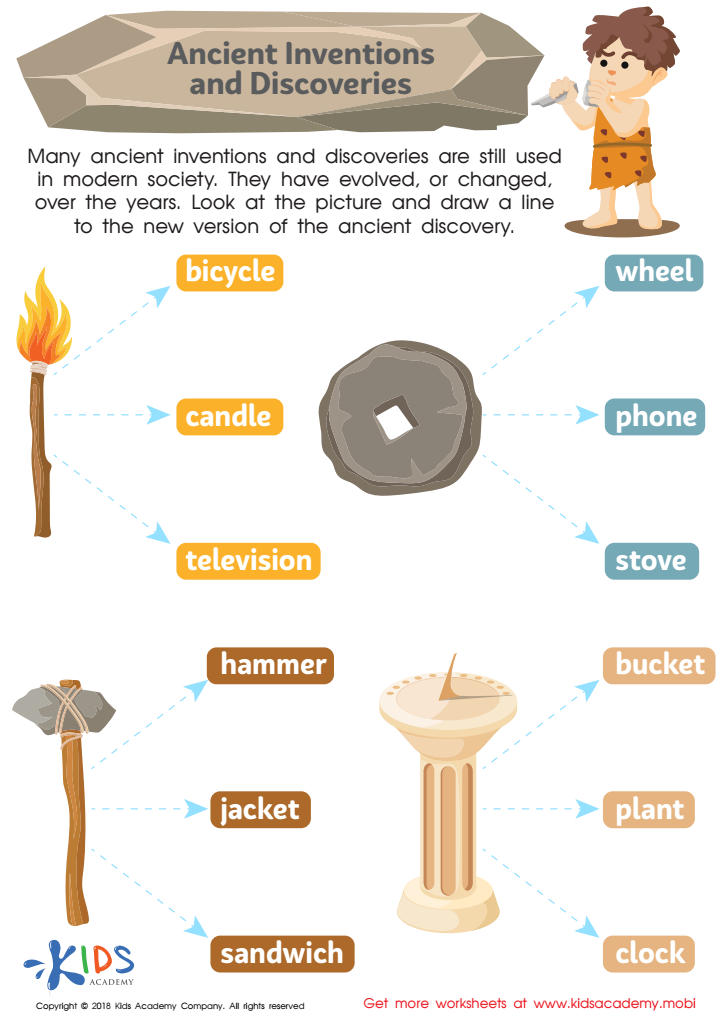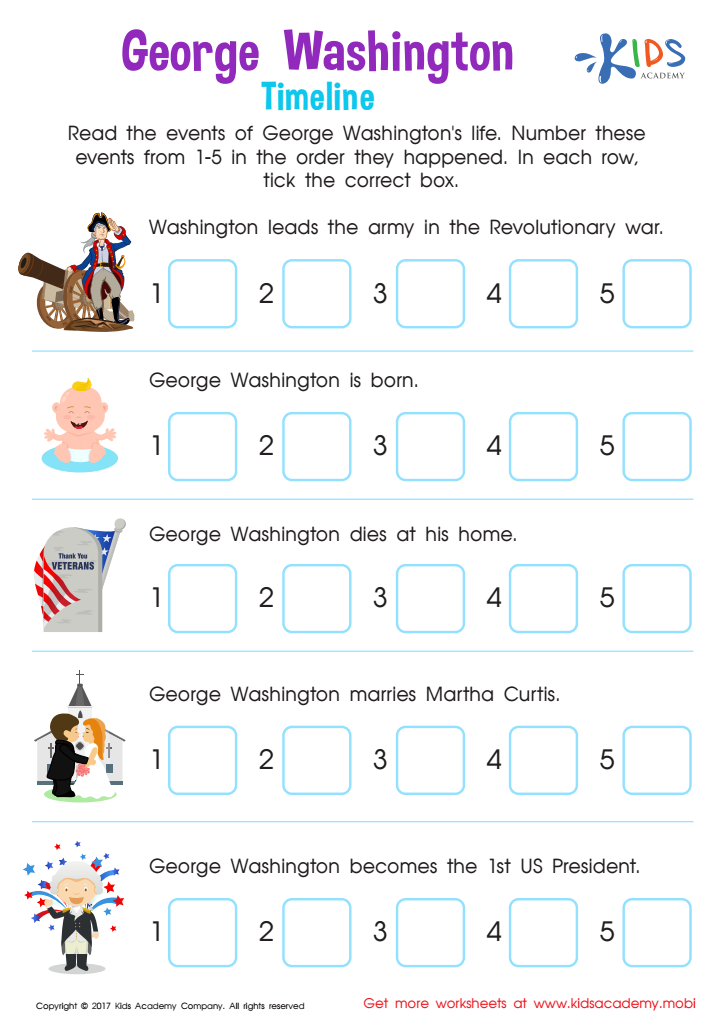Historical Knowledge Extra Challenge Worksheets for Ages 7-9
3 filtered results
-
From - To
Discover our "Historical Knowledge Extra Challenge Worksheets" designed for children aged 7-9! These engaging worksheets provide a unique opportunity for young learners to deepen their understanding of history while enhancing critical thinking skills. Each activity encourages exploration of significant events, influential figures, and important cultural themes. Tied to educational standards, these challenges are perfect for reinforcing classroom lessons or enriching home learning experiences. With fun illustrations and thought-provoking questions, our worksheets foster a love for history and inspire curiosity. Ideal for both educators and parents, these resources make learning about the past an exciting adventure for young historians!


Important Years in History Worksheet


Ancient Inventions and Discoveries Worksheet


George Washington Timeline Worksheet
Parents and teachers should prioritize the Historical Knowledge Extra Challenge for ages 7-9 because it fosters critical thinking, curiosity, and a sense of identity in young learners. At this foundational stage, children are naturally inclined to ask questions about the world around them, and introducing historical knowledge helps satiate their curiosity. Understanding history cultivates a sense of context for current events, enabling children to comprehend how past societies, cultures, and events shape contemporary life.
Moreover, engaging with history encourages empathy and perspective-taking, allowing children to appreciate diverse viewpoints and experiences. This not only enriches their understanding of different cultures but builds essential social skills in collaboration and respect for others. Additionally, the challenge aspect motivates children to explore, engage, and think deeply about historical narratives, enhancing their research and critical analysis skills.
By implementing the Historical Knowledge Extra Challenge, parents and teachers can create an enriching environment where learning transcends textbooks, stimulating conversations about society and values. This approach prepares children to be informed and active citizens, equipped with the knowledge to navigate their own communities and the world. Ultimately, investing in these historical challenges is an investment in our future’s thoughtful, culturally-competent leaders.

 Assign to My Students
Assign to My Students




















